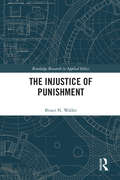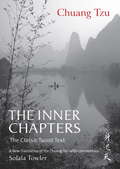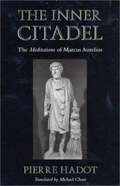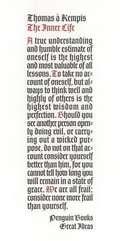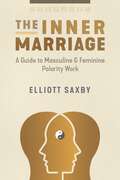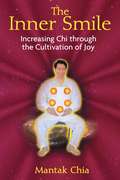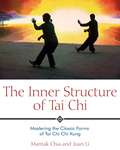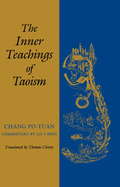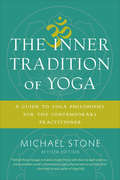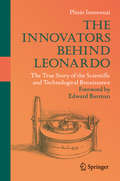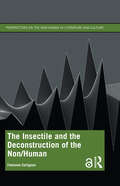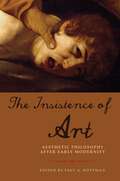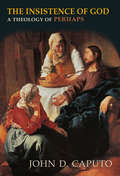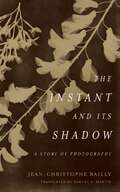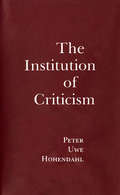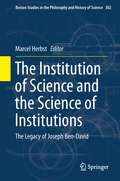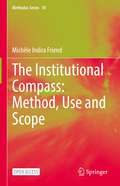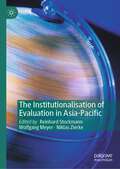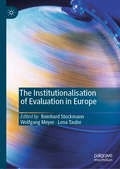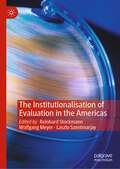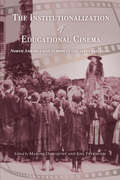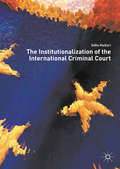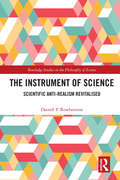- Table View
- List View
The Injustice of Punishment (Routledge Research in Applied Ethics)
by Bruce N. WallerThe Injustice of Punishment emphasizes that we can never make sense of moral responsibility while also acknowledging that punishment is sometimes unavoidable. Recognizing both the injustice and the necessity of punishment is painful but also beneficial. It motivates us to find effective means of minimizing both the use and severity of punishment, and encourages deeper inquiry into the causes of destructive behavior and how to change those causes in order to reduce the need for punishment. There is an emerging alternative to the comfortable but destructive system of moral responsibility and just deserts. That alternative is not the creation of philosophers but of sociologists, criminologists, psychologists, and workplace engineers; it was developed, tested, and employed in factories, prisons, hospitals, and other settings; and it is writ large in the practices of cultures that minimize belief in individual moral responsibility. The alternative marks a promising path to less punishment, less coercive control, deeper common commitment, and more genuine freedom.
The Inner Chapters
by Solala TowlerThe writings of Chuang Tzu stand alongside the Tao Te Ching as foundational classics of Taoism. Dating back to the fourth century BC, The Inner Chapters is full of fantastical tales that both entertain and provide guidance on living a good life--a gigantic fish that becomes a bird, a cook who never sharpens his blade, a magical being who lives in the mountains, and more. This new luxury edition is distinguished by insightful commentary and superb photographs that convey in their wordless beauty the profound wisdom of Chuang Tzu's text.
The Inner Citadel: The Meditations of Marcus Aurelius
by Michael Chase Pierre HadotThe Meditations of Marcus Aurelius is seen as one of the three most important expressions of Stoicism. Pierre Hadot here uncovers levels of meaning and expands the understanding of its underlying philosophy through what he argues are the deceptive clarity and ease of the work's style.
The Inner Life
by Thomas À KempisThroughout history, some books have changed the world. They have transformed the way we see ourselves—and each other. They have inspired debate, dissent, war and revolution. They have enlightened, outraged, provoked and comforted. They have enriched lives—and destroyed them. Now, Penguin brings you the works of the great thinkers, pioneers, radicals and visionaries whose ideas shook civilization, and helped make us who we are. Penguin's Great Ideas series features twelve groundbreaking works by some of history's most prodigious thinkers, and each volume is beautifully packaged with a unique type-drive design that highlights the bookmaker's art. Offering great literature in great packages at great prices, this series is ideal for those readers who want to explore and savor the Great Ideas that have shaped the world. The Inner Life is taken from Thomas à Kempis's The Imitation of Christ, a classic Christian devotional that has taught and inspired generations. .
The Inner Marriage: A Guide to Masculine and Feminine Polarity Work
by Elliott Saxby• Explains polarity work as a tool to heal trauma, become less judgmental, and develop a more integrated relationship with ourselves and others• Explores 44 common traits of mature and immature masculine and feminine expressions, explaining how to evolve unhealthy expressions into healthy ones• Offers simple yet profound methods for evolving your inner masculine and feminine, as well as healing the shadowPolarity work allows us to balance, evolve, and integrate the masculine and feminine energies within our personality to create an inner union that supports the release and transformation of trauma on the cellular and soul level. It is a holistic practice that leads to the embodiment of both what we choose and who we really are. Fusing ancient Vedic knowledge and Western psychology with Tantric and Taoist wisdom, Elliott Saxby offers simple yet profound methods for evolving our inner masculine and feminine as well as healing the shadow side of these expressions. The Inner Marriage explores sexuality and desire through polarity work and the need to realign our physical, mental, and emotional bodies to generate power through our sexuality. Using the polarity framework in relation to universal laws, this practical guide off ers maps and exercises that invite us to evolve, harmonize, and integrate opposing energies. An invaluable tool in integrative and non-dual therapy and the development of emotional intelligence.
The Inner Smile: Increasing Chi through the Cultivation of Joy
by Mantak ChiaA guide to the foundational practice of “smiling to the organs” to promote deep relaxation and internal health • Presents exercises that dissolve the physical and mental tensions that can cause energy blockages and unhealthy chi flow • Shows how to recognize illness at its inception on the organ level and how to balance the emotions to heal it The Inner Smile is a practice that focuses gratitude and joy on the internal organs to resolve the physical and mental tensions that can lead to illness. In Taoism negative emotions--anger, sadness, depression, fear, and worry--are seen as low-grade energy that causes chronic disease and steals our major life force by creating energy blockages. Master Mantak Chia shows that the internal awareness produced by the simple yet powerful Inner Smile meditation practice flushes the organs of poisonous negative energy that may be blocking chi energy flow in order to nourish the entire body. Just as a genuine outer smile transmits positive energy and has the power to warm and heal, an inner smile produces a high grade of energy that promotes powerful internal healing, deep relaxation, happiness, and longevity. Smiling to the organs and thanking them for the work they do helps to reawaken the intelligence of the body, which, once activated, can dissipate emotional imbalances and inner disharmony before serious illness manifests.
The Inner Structure of Tai Chi: Mastering the Classic Forms of Tai Chi Chi Kung
by Mantak Chia Juan LiExplores the deep, internal work necessary for the effective practice of tai chi• Reveals the Taoist principles that gave birth to the Yang-style tai chi forms• Shows how tai chi can circulate powerful healing energies through the bodyTaoist adepts developed tai chi as both a martial art and a way to cultivate their physical body, energy body, and spirit body. Like all Taoist exercises, its main purpose is to form a connection to the basic energy that is the foundation of all life: chi. Until the beginning of the twentieth century, tai chi was considered a secret practice that was passed down only within a closely knit structure of family and loyal disciples. Despite its widespread growth in popularity as a martial art and health exercise, many of its underlying internal practices remain unknown.The Inner Structure of Tai Chi explores the deep, internal work necessary for the effective practice of tai chi. Designed for practitioners at every level, the book contains step-by-step illustrated instructions for mastering the 13 forms of early Yang-style tai chi, also known as Tai Chi Chi Kung. The authors demonstrate the relationship of the inner structure of tai chi to the absorption, transformation, and circulation of the three forces that animate all life--the Universal force, the Cosmic force, and the Earth force--revealing the principles and practices necessary to receive the full spectrum of physical, psychological, and spiritual benefits that tai chi can bring.
The Inner Teachings of Taoism
by Thomas Cleary Chang Po-TuanTaoist inner alchemy is a collection of theories and practices for transforming the mind and refining the self. The Inner Teachings of Taoism includes a classic of Chinese alchemy known as Four Hundred Words on the Gold Elixir. Written in the eleventh century by a founder of the Complete Reality School, this text is accompanied by the lucid commentary of the nineteenth-century adept Lui I-ming.
The Inner Tradition of Yoga: A Guide to Yoga Philosophy for the Contemporary Practitioner
by Michael StoneA wise, accesible guide that makes the spiritual and ethical teachings of the yogic tradition immediately relatable to our practice on the mat--and in our everyday relationships and activities. Now revised and updated.“There is no daily practice without some formal training; and there is no deep spiritual training without the mess of relational life. The two are one,” says Michael Stone. This wise, accessible guide—now revised and updated—makes the spiritual and ethical teachings of the yogic tradition immediately relatable to our practice on the mat and in our everyday relationships and activities. Stone draws from numerous disciplines—including Buddhism and psychotherapy—to provide an in-depth, completely clear explanation of yogic philosophy, along with teachings on how to work with the conditions of our life and fully appreciate yoga as a practice of being intimate with moment-to-moment reality.
The Innovators Behind Leonardo: The True Story of the Scientific and Technological Renaissance
by Plinio InnocenziThis engaging book places Leonardo da Vinci’s scientific achievements within the wider context of the rapid development that occurred during the Renaissance. It demonstrates how his contributions were not in fact born of isolated genius, but rather part of a rich period of collective advancement in science and technology, which began at least 50 years prior to his birth.Readers will discover a very special moment in history, when creativity and imagination were changing the future—shaping our present. They will be amazed to discover how many technological inventions had already been conceived or even designed by the engineers and inventors who preceded Leonardo, such as Francesco di Giorgio and Taccola, the so-called Siena engineers. This engaging volume features a wealth of illustrations from a variety of original sources, such as manuscripts and codices, enabling the reader to see and judge for him or herself the influence that other Renaissance engineers and inventors had on Leonardo.
The Insectile and the Deconstruction of the Non/Human (Perspectives on the Non-Human in Literature and Culture)
by Fabienne CollignonThe Insectile and the Deconstruction of the Non/Human defines, conceptualizes, and evaluates the insectile—pertaining to an entomological fascination—in relation to subject formation. The book is driven by a central dynamic between form and formlessness, further staging an investigation of the phenomenon of fascination using Lacanian psychoanalysis, suggesting that the psychodrama of subject formation plays itself out entomologically. The book’s engagement with the insectile—its enactments, cultural dreamwork, fantasy transformations—‘in-forming’ the so-called human subject undertakes a broader deconstruction of said subject and demonstrates the foundational but occluded role of the insectile in subject formation. It tracks the insectile across the archives of psychoanalysis, seventeenth century still life painting, novels from the nineteenth century to the present day, and post-1970s film. The Insectile and the Deconstruction of the Non/Human will be of interest for scholars, graduate students, and upper-level undergraduates in film studies, visual culture, popular culture, cultural and literary studies, comparative literature, and critical theory, offering the insectile as new category for theoretical thought.
The Insistence of Art: Aesthetic Philosophy after Early Modernity
by Paul A. KottmanPhilosophers working on aesthetics have paid considerable attention to art and artists of the early modern period. Yet early modern artistic practices scarcely figure in recent work on the emergence of aesthetics as a branch of philosophy over the course the eighteenth century. This book addresses that gap, elaborating the extent to which artworks and practices of the fifteenth through the eighteenth centuries were accompanied by an immense range of discussions about the arts and their relation to one another.Rather than take art as a stand-in for or reflection of some other historical event or social phenomenon, this book treats art as a phenomenon in itself. The contributors suggest ways in which artworks and practices of the early modern period make aesthetic experience central to philosophical reflection, while also showing art’s need for philosophy.
The Insistence of God: A Theology of Perhaps (Indiana Series in the Philosophy of Religion)
by John D. Caputo&“A tour de force . . . provocative ideas expressed in Heideggerian, Derridean, and Deleuzian rhetoric . . . for a new wave of Christian theologians&” (Bibliographia). The Insistence of God presents the provocative idea that God does not exist—God insists. God&’s existence is a human responsibility, which may or may not happen. For John D. Caputo, God&’s existence is haunted by &“perhaps,&” which does not signify indecisiveness but an openness to risk, to the unforeseeable. Perhaps constitutes a theology of what is to come and what we cannot see coming. Responding to current critics of continental philosophy, Caputo explores the materiality of perhaps and the promise of the world. He shows how perhaps can become a new theology of the gaps God opens. &“John D. Caputo is at the top of his game, and he is not content to reiterate what he has already expressed, but continues to develop his own ideas further by way of a thorough engagement with the fields of theology, Continental philosophy, and religious thought.&” —Clayton Crockett, University of Central Arkansas &“For those allergic to theological certainty―whether of God&’s existence or of God&’s death―Caputo delivers storm-fresh relief: the theopoetics of God&’s insistence.&” —Catherine Keller, Drew University &“In my life I have read no more stimulating book of theology. Buckle your seatbelt!&” —Dialog &“An excellent text that opens the way into new forms of theological thinking. He puts forward an argument that must be wrestled with and brings to light new avenues for both religious and theological thought. Caputo is not for the faint of heart.&” —Reviews in Religion and Theology
The Instant and Its Shadow: A Story of Photography
by Jean-Christophe BaillyA compelling and innovative reflection on the way photography captures and condenses timeTwo photographs, connected by a ladder, separated by a century. First, William Henry Fox Talbot photographed a faithfully realistic image of a ladder against a haystack in the English countryside.One hundred years later, an anonymous photographer captured another ladder, “photographed” alongside an incinerated man by the blinding light of the atomic bomb. These two images underpin a poetic and theoretical reflection on the origins of photographic technique, the imaginative power of montage, and the relation of photography to time itself in Jean-Christophe Bailly’s The Instant and Its Shadow, translated into English for the very first time.A rare find of intellectual caliber and theoretical rigor, The Instant and Its Shadow pursues a unique and powerful reflection on the first hundred years of photography’s history and on the essence of the photographic art in general. Inspired by the unexpected coming together of these two iconic images, the book begins by retracing Talbot’s invention of the photographic calotype in the early nineteenthcentury, highlighting the paradox that saw Talbot wishing to imitate the representative arts of painting and drawing while simultaneously liberating the image from any imitative paradigm. This analysis leads Bailly to elucidate photography’s relation to material and visual reality. A meditation on photography’s seeming ability to stop time follows, concluding with the photographs of Hiroshima and the photographic nature of the atomic bomb. Building on an inspired juxtaposition of The Haystack with the Hiroshima photographs, the book becomes a testament to the potency of photomontage, arguing that “the more singular an image, the greater its connective power.” Bailly’s book is at once a lyrical homage to some of the founding texts of photographic theory and a startling reminder of the uncanny power of photography itself. Part theoretical reflection, part lyrical reverie, The Instant and Its Shadow is packed with profound and stellar insights about the medium.
The Institution of Criticism
by Peter Uwe HohendahlGerman radicals of the 1960s announced the death of literature. For them, literature both past and present, as well as conventional discussions of literary issues, had lost its meaning. In The Institution of Criticism, Peter Uwe Hohendahl explores the implications of this crisis from a Marxist perspective and attempts to define the tasks and responsibilities of criticism in advanced capitalist societies. Hohendahl takes a close look at the social history of literary criticism in Germany since the eighteenth century. Drawing on the tradition of the Frankfurt School and on Jürgen Habermas’s concept of the public sphere, Hohendahl sheds light on some of the important political and social forces that shape literature and culture. The Institution of Criticism is made up of seven essays originally published in German and a long theoretical introduction written by the author with English-language readers in mind. This book conveys the rich possibilities of the German perspective for those who employ American and French critical techniques and for students of contemporary critical theory.
The Institution of Science and the Science of Institutions
by Marcel HerbstThe present anthology, edited by Marcel Herbst, is partially based on a conference, held in 2009, to reflect on the legacy of Ben-David, and contains a selection of substantially revised papers, plus four contributions specifically written for this volume. The book focuses on three major lines of Ben-David's research, namely "Center and Periphery" (Part I), "Role and Ethos" (Part II), and "Organization and Growth" (Part III). In addition, comprehensive introductory ("Prologue") and concluding chapters ("Epilogue", Part IV) by Marcel Herbst are provided. The volume addresses the following disciplines: higher education, history and sociology of science, philosophy of science, history of medicine, public administration, policy studies, Jewish studies, and economics. The anthology is one of two new publications on Joseph Ben-David after the special Minerva edition Vol. 25, Numbers 1-2, March 1987, and Gad Freudenthal's collection of Ben-David's writings [1991]. The text can be used in graduate studies, it addresses higher education professionals or public officials, and serves as a gateway to researchers in the field of higher education, science studies, or policy sciences.
The Institutional Compass: Method, Use and Scope (Methodos Series #18)
by Michèle Indira FriendThis open access book presents a new generation multi-criteria, multi-stake holder, decision aide, called an "institutional compass". Based on hard data, the compass tells us what quality-direction we are heading in as an institution, region, system or organisation. The quality is not chosen from the usual scalar qualities of: good, neutral and bad. Instead, it is a quality chosen between: harmony, discipline and excitement. None is good in and of itself. We need some of each. The compass marks a new generation in four respects. 1. The representation of the data is intuitive and simple to understand, and therefore can be used to communicate and justify policy decisions. 2. Any data can be included, i.e., none is excluded. This makes the compass tailored to particular situations, voices and contexts. 3. The data includes different time horizons and different types of value: monetary, use, social, sentimental, religious, intrinsic, existential... 4. The process of compass construction can be made inclusive at several junctions. An institutional compass can be extended to evaluate products, add normativity to a systems analysis, reflect world-views such as that of ecological economists or function as an accounting system to manage scarce resources. There are four parts to the book. The first part introduces the general ideas behind the compass. In the second part, the author presents the method for constructing the compass. This includes data collection, data analysis and a mathematical formula to aggregate the data into a single holistic reading. In the third part, the author extends the methodology: to incorporate it into systems science, adding a normative and quality-direction dimension, to use it as a non-linear accounting method and more thoroughly to reflect the philosophy of ecological economists to give a real measure of sustainability. In the fourth part, we see three case studies: one for the World Health Organisation, a second is the use of the compass to label products in a shop and the third is as a regional compass for Hauts-de-France. The book ends with philosophical conclusions. Throughout the book, we see tight arguments, refreshing ideas and a thorough treatment of objectivity in decision making.
The Institutional Origins of Communal Violence
by Yuhki TajimaWhy are transitions from authoritarian rule often marked by spikes in communal violence? Through examining Indonesia's recent transition to democracy, this book develops a novel theoretical explanation for this phenomenon that also accounts for why some communities are vulnerable to violence during such transitions while others are able to maintain order. Yuhki Tajima argues that repressive intervention by security forces in Indonesia during the authoritarian period rendered some communities dependent on the state to maintain intercommunal security, whereas communities with a more tenuous exposure to the state developed their own informal institutions to maintain security. As the coercive grip of the authoritarian regime loosened, communities that were more accustomed to state intervention were more vulnerable to spikes in communal violence until they developed informal institutions that were better adapted for less state intervention. To test the theory, Tajima employs extensive fieldwork in, and rigorous statistical evidence from, Indonesia as well as cross-national data.
The Institutionalisation of Evaluation in Asia-Pacific
by Reinhard Stockmann Wolfgang Meyer Niklas ZierkeThis book examines the progress of institutionalisation of evaluation in Asia Pacific from various perspectives. It presents prior developments and current states of evaluation in 11 countries, focusing on three dimensions, namely the political, social and professional systems. These detailed country reports, which have been written by selected researchers and authors of the respective countries, lead to a concluding comparison and synthesis. This is the third of four volumes of the compendium The Institutionalisation of Evaluation. The first volume on Europe was published in 2020, and the second volume on the Americas in 2022. It will be followed by another volume on Africa. The overall aim is to provide an interdisciplinary audience with cross-country learning to enable them to better understand the institutionalisation of evaluation in different nations, world regions and sectors.
The Institutionalisation of Evaluation in Europe
by Reinhard Stockmann Wolfgang Meyer Lena TaubeThis book examines the progress of institutionalisation of evaluation in European countries from various perspectives. . It describes both prior developments and current states of evaluation in 16 European countries and across the European Union (EU), focussing on three dimensions, namely the political, social and professional systems. These detailed country reports, which have been written by selected researchers and authors from each of the respective countries, lead to a concluding comparison and synthesis. This is the first of four volumes of the compendium The Institutionalisation of Evaluation to be followed by volumes on the Americas, Africa and Australasia. The overall aim is to provide an interdisciplinary audience with cross-country learning to enable them to better understand the institutionalisation of evaluation in different nations, world regions and different sectors.
The Institutionalisation of Evaluation in the Americas
by Reinhard Stockmann Wolfgang Meyer Laszlo SzentmarjayThis book examines the progress of institutionalisation of evaluation in American countries from various perspectives. It presents prior developments of evaluation and current states of 11 American countries and three transnational organisations concerning three dimensions, namely the political, social and professional system. These detailed country reports, which have been written by selected researchers and authors of the respective countries, lead to a concluding comparison and synthesis. This is the second of four volumes of the compendium The Institutionalisation of Evaluation. The first volume on ‘Europe’ was published in 2020. After the publication of the ‘Americas’ – volume in 2021 it will be followed by two more volumes on ‘Asia and Pacific’, and ‘Africa’. The overall aim is to target an interdisciplinary audience and offer cross-country learning as it enables to better understand the institutionalisation of evaluation in different national states and world regions as well as in different sectors.
The Institutionalization of Educational Cinema: North America and Europe in the 1910s and 1920s
by Marina Dahlquist and Joel FrykholmEssays by scholars on how film has been used by schools, libraries, governments, and organizations for educational purposes.The potential of films to educate has been crucial for the development of cinema intended to influence culture, and is as important as conceptions of film as a form of art, science, industry, or entertainment. Using the concept of institutionalization as a heuristic for generating new approaches to the history of educational cinema, contributors to this volume study the co-evolving discourses, cultural practices, technical standards, and institutional frameworks that transformed educational cinema from a convincing idea into an enduring genre. The Institutionalization of Educational Cinema examines the methods of production, distribution, and exhibition established for the use of educational films within institutions—such as schools, libraries, and industrial settings—in various national and international contexts and takes a close look at the networks of organizations, individuals, and government agencies that were created as a result of these films’ circulation. Through case studies of educational cinemas in different North American and European countries that explore various modes of institutionalization of educational film, this book highlights the wide range of vested interests that framed the birth of educational and nontheatrical cinema.
The Institutionalization of Educational Cinema: North America and Europe in the 1910s and 1920s
by Marina Dahlquist and Joel FrykholmEssays by scholars on how film has been used by schools, libraries, governments, and organizations for educational purposes.The potential of films to educate has been crucial for the development of cinema intended to influence culture, and is as important as conceptions of film as a form of art, science, industry, or entertainment. Using the concept of institutionalization as a heuristic for generating new approaches to the history of educational cinema, contributors to this volume study the co-evolving discourses, cultural practices, technical standards, and institutional frameworks that transformed educational cinema from a convincing idea into an enduring genre. The Institutionalization of Educational Cinema examines the methods of production, distribution, and exhibition established for the use of educational films within institutions—such as schools, libraries, and industrial settings—in various national and international contexts and takes a close look at the networks of organizations, individuals, and government agencies that were created as a result of these films’ circulation. Through case studies of educational cinemas in different North American and European countries that explore various modes of institutionalization of educational film, this book highlights the wide range of vested interests that framed the birth of educational and nontheatrical cinema.
The Institutionalization of the International Criminal Court
by Salla HuikuriThis book explores the institution of the International Criminal Court (ICC) as a policy instrument. It argues that after the Cold War the European Union started challenging the unilateral policies of the United States by promoting new norms and institutions, such as the ICC. This development flies in the face of traditional explanations for cooperation, which would theorize institutionalization as the result of hegemonic preponderance, rational calculations or common identities. The book explains the dynamics behind the emergence of the ICC with a novel theoretical concept of normative binding. Normative binding is a strategy that provides middle powers with the means to tie down the unilateral policies of powerful actors that prefer not to cooperate. The idea is to promote new multilateral norms and deposit them in institutions, which have the potential to become binding even on unilateralist actors, if the majority of states adhere to them.
The Instrument of Science: Scientific Anti-Realism Revitalised (Routledge Studies in the Philosophy of Science)
by Darrell P. RowbottomRoughly, instrumentalism is the view that science is primarily, and should primarily be, an instrument for furthering our practical ends. It has fallen out of favour because historically influential variants of the view, such as logical positivism, suffered from serious defects. In this book, however, Darrell P. Rowbottom develops a new form of instrumentalism, which is more sophisticated and resilient than its predecessors. This position—‘cognitive instrumentalism’—involves three core theses. First, science makes theoretical progress primarily when it furnishes us with more predictive power or understanding concerning observable things. Second, scientific discourse concerning unobservable things should only be taken literally in so far as it involves observable properties or analogies with observable things. Third, scientific claims about unobservable things are probably neither approximately true nor liable to change in such a way as to increase in truthlikeness. There are examples from science throughout the book, and Rowbottom demonstrates at length how cognitive instrumentalism fits with the development of late nineteenth- and early twentieth-century chemistry and physics, and especially atomic theory. Drawing upon this history, Rowbottom also argues that there is a kind of understanding, empirical understanding, which we can achieve without having true, or even approximately true, representations of unobservable things. In closing the book, he sets forth his view on how the distinction between the observable and unobservable may be drawn, and compares cognitive instrumentalism with key contemporary alternatives such as structural realism, constructive empiricism, and semirealism. Overall, this book offers a strong defence of instrumentalism that will be of interest to scholars and students working on the debate about realism in philosophy of science.
